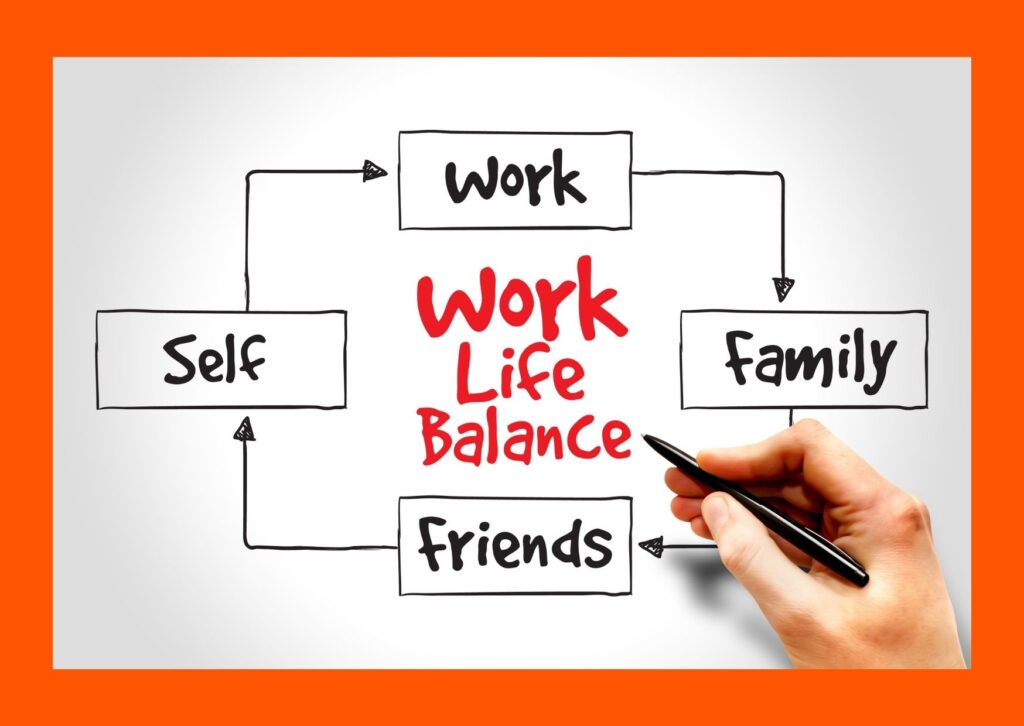These 5 Countries Have the Best Work-Life Balance
Did you know that in some countries employees enjoy over 30 days of annual leave, along with shorter work weeks, and the ability to prioritise quality family time!
In this article, we’re going to look at 5 countries with the best work-life balance which might make you think about relocating.
Contents
Video of Countries with the Best Work-Life Balance
Countries with the Best Work-Life Balance
How Companies Can Promote Work-Life Balance?
What Role Does Government Policy Play in Shaping Work-Life Balance?

Video of Countries with the Best Work-Life Balance
Countries with the Best Work-Life Balance
In no particular order, these 5 countries highlight why they have the best work-life balance.
Italy
This European country is home to over 1500 lakes, including some of the most beautiful and deepest in Europe.
With most of the lakes being surrounded by stunning landscapes, this has inspired artists and poets for centuries.
It also makes our top 5 for best work-life balance.
According to the BBC, full-time employees in Italy spend 69% of their day on personal care and leisure.
This makes it the country where people appear to have the most leisure time.
16.5 hours of their day is spent, not at work!
Italy is also a country that doesn’t seem to have many employees working long and tiresome weeks.
According to the OECD, 10% of employees in the OECD work 50 hours or more per week.
However, in Italy, only 3% of employees work more than 50 hours a week.
Does this make you want to live there?
Let’s see what the other 4 countries have to offer.

France
Known for its influence on the world of fashion, hosting the most prestigious fashion weeks, and for eating frog’s legs. Ha ha
France appears to be a country with a great work-life balance.
France has a whopping 16.2 hours per day of personal and leisure time.
This means on average, they are only at work for 7.8 hours of the day.
Regarding statutory annual leave, France seems to have one of the highest with a whopping 36 days.
This consists of 25 days of annual leave and 11 public holidays.
French culture also appears to promote a sense of relaxation and rest.
It is also said that locals prioritise non-work time.
They also have below the average when it comes to working 50 hours a week or more.
Although not quite as good as Italy, only 8% of French employees work more than 50 hours a week.

Denmark
This is a country that I loved visiting and I’m not surprised to see it in the top 5.
With its bright colourful houses, friendly culture, and commitment to sustainability and green living, I can see why people would want to work here.
In Denmark, only 1% of employees work more than 50-hour weeks.
Most people work 8am – 4pm and prioritise family time.
In fact, 4pm -7pm is considered sacred family time.
And if you don’t have a family yet, you can use this time to go to the gym, see friends or whatever is enjoyable to you.
Flexible working is also highly supported in demark.
In 1998 the Danish introduced their FleksJob scheme.
This is where employees can request different working hours, patterns, or even less physically demanding tasks, and more.
Just like France, Denmark also has 36 days of statutory annual leave.
25 days of annual leave and 9-11 days of public holidays depending on the year.
Danish employees are also entitled to 100% of their wages for sick days.

Spain
Known for its afternoon siestas, fiery flamenco dancing, and vibrant festivals, Spain is another European country to make the top 5.
In Spain, it’s said that only 2.5% of employees work very long hours and Spanish employees devote most of their time to leisure and personal care.
Among some companies in Spain, they still allow a long lunch break. (Siesta)
And in summer there is a common Friday tradition known as Jornada intensiva where employees will work a continuous day, without a break to finish work early.
This means people can have more time to enjoy life after work.
Does it sound like you want to live and work here?
Well, let’s look at our final country.

New Zealand
Known for its breathtaking landscapes, where the spirit of adventure meets the serenity of nature, New Zealand makes the top 5.
It’s also where they filmed The Lord of the Rings.
Although a whopping 14% of employees work more than 50-hour weeks, New Zealand still offers 31 days of statutory annual leave.
20 days of annual leave, 11 public holidays.
New Zealand is also a country that values health and work-life balance.
According to Provisas, the country offers flexible hours, part-time work, and job-sharing options.
People also seem to have a strong culture of family and community, and many employers offer paid parental leave as well as opportunities for volunteering.
Overall, these 5 countries highlight great ways to encourage work-life balance but employers could also do more.
Let’s look at what companies can do to promote work-life balance.
If you’d like to learn more about work-life balance, check out our blog “Work-Life Balance: Key Steps for a Happier, Healthier Workforce”

How Companies Can Promote Work-Life Balance?
Achieving a healthy work-life balance in any workplace is crucial for the wellbeing of employees and the overall success of a company.
A company plays a significant role in shaping the work-life balance of their people through their initiatives and policies.
Here are some key strategies companies can implement to promote work-life balance:
Flexible Work Arrangements
Offering flexible working hours and remote work can make a big difference in how employees manage their personal and professional lives.
A company that promotes Flexibility allows employees to adjust their schedules to better fit personal commitments.
These could include child care, education, or even personal health routines.
Flexible working allows employees to prioritise the things that help them feel their best.
Employees who feel their best will be more beneficial to the company they work for.
Wellbeing Initiatives
Companies that want to take work-life balance seriously can establish wellbeing programs that promote physical, mental, and emotional health.
This can include access to mental health resources, wellbeing workshops, physical health programs, and more!
Initiatives like company-sponsored fitness classes or gym memberships can help support health and wellbeing and encourage activity outside of work.
Regular wellbeing workshops can help employees learn strategies to manage stress, avoid burnout, and maintain a healthier lifestyle.

Implement Leave Policies
Implementing leave policies such as parental leave, sabbaticals, and personal days can help employees feel supported when they need to take time off work.
Encouraging employees to take their full annual leave entitlement without guilt also contributes to a healthier work environment.
Some companies allow employees to buy more holiday time should they need it.
Allowing employees enough leave gives them the opportunities to recharge and return to work with enthusiasm and commitment.
Employee Support and Resources
Providing resources that help employees manage their workload more effectively can contribute to better work-life balance.
This could include training in time management, access to productivity tools, and support from human resources for personal or family matters.
Effective time management can allow employees to be more productive without compromising personal time.
Encourage Regular Breaks and Downtime
A workplace environment that values breaks during the day helps prevent fatigue and keeps productivity high.
Regular breaks can help to increase productivity.
Companies could design their workspaces to include relaxation areas or provide activities that encourage a mental break.
This could include things like on-site massage, team outings or hobby groups.
Check out our blog on “How Breaks at Work Can Skyrocket Productivity”

What Role Does Government Policy Play in Shaping Work-Life Balance?
Government policies set the legal standards and frameworks that influence how organisations operate support their employees.
These policies can ensure that work-life balance is not just a privilege for the few but a standard that benefits all workers.
Companies can go above and beyond legal policies to attract employees.
Here’s how government action can impact work-life balance:
Legislation on Working Hours
Governments create legislation that limits the number of hours an employee can work per week.
In the UK the maximum number of hours allowed to work is 48, however, some employees work beyond this.
Parental and Maternity Leave Policies
Strong parental and maternity leave policies allow parents to take time off work to care for their new children.
Policies like this allow time off without fear of losing jobs or a significant portion of their income.
Countries like Sweden and Canada offer extensive paid parental leave.
Studies show this improves parental wellbeing and supports equal parenting roles, which promotes better work-life balance.

Mandated Holiday and Sick Leave
Requiring employers to offer paid holiday and sick leave is another way governments can help employees recharge and recover without the stress of lost income.
This not only supports physical and mental health but also boosts productivity and job satisfaction upon the employee’s return.
As you’ve seen from above, each country has a different mandated holiday period.
Support for Childcare
Governments can provide support and subsidies for childcare.
This can help to reduce the barriers for parents to return to full employment.
Childcare that is affordable and accessible can influence a parent’s ability to balance work and family commitments.
Anti-Discrimination Laws
Ensuring that employees who take advantage of work-life balance policies (like parental leave or reduced hours) are not discriminated against is essential for these policies to be effective.
Anti-discrimination laws need to protect workers from being penalised for using their legal rights to manage work and personal life.
Work-life balance requires ongoing support and commitment from all employers who want to create a positive workplace culture.
At Loving Life, we help companies support the health and wellbeing of their employees.
For more information, check out our employee wellbeing services.
Author
Tyler Lowe – Health & Wellbeing Speaker
BSc Sport & Exercise Rehabilitation


